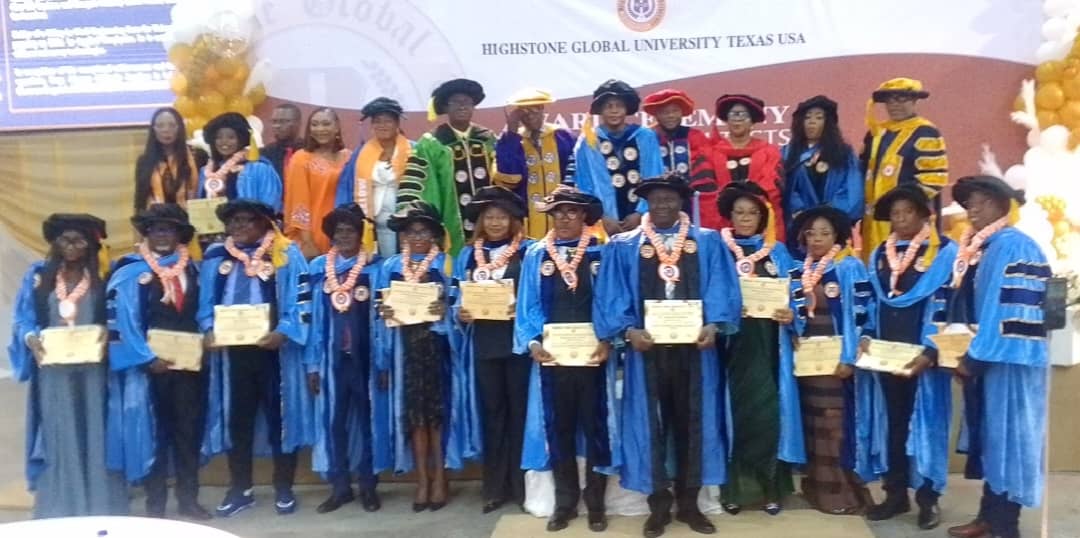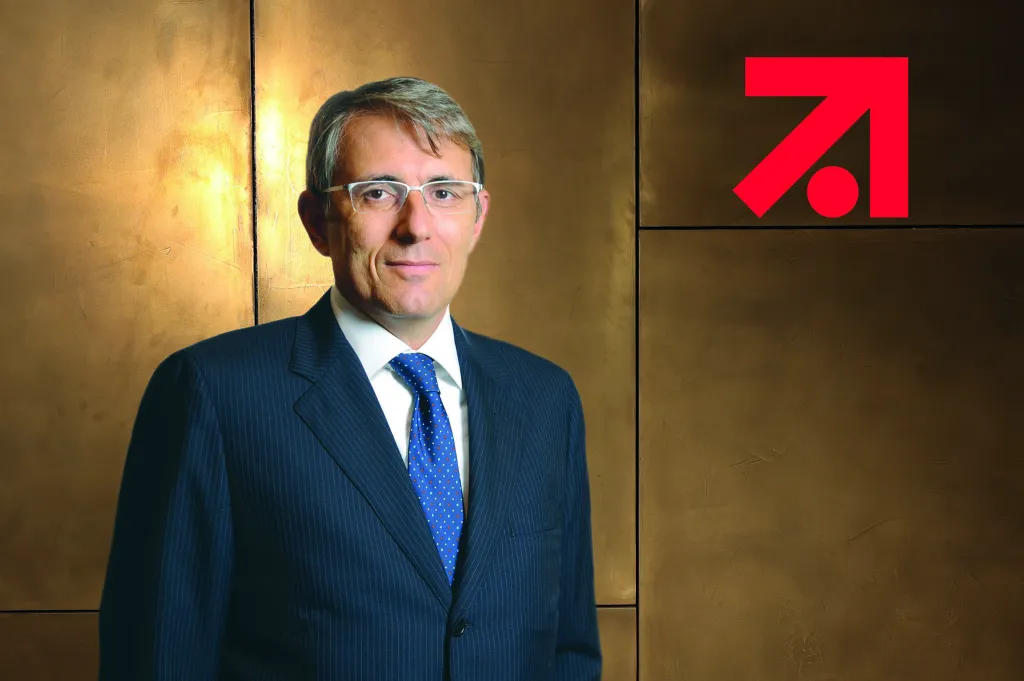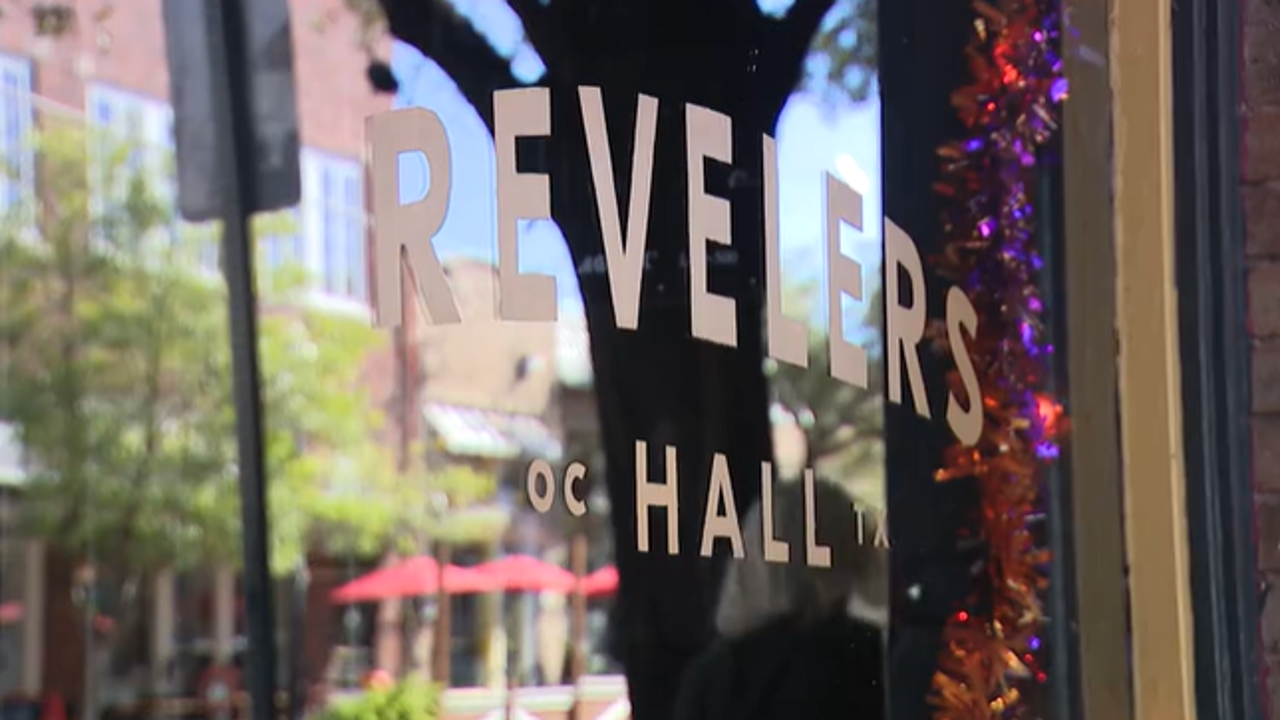Copyright sharpedgenews

By Genesis Ogiri In a ceremony that epitomized intellectual rigor, moral purpose, and visionary leadership, Highstone Global University, Texas USA, convened its Honorary Doctorates Award Ceremony at the prestigious Armed Forces Officers’ Mess, Asokoro, Abuja. The event drew an assembly of distinguished global leaders, policymakers, corporate executives, academic luminaries, and thought pioneers, all united to recognize individuals whose exceptional contributions have reshaped industries, influenced communities, and forged enduring legacies. Far from a mere ceremonial occasion, the ceremony embodied Highstone’s enduring philosophy — honoring the architects of excellence. These are men and women whose leadership transcends titles, whose influence is measured not by position but by impact, innovation, and the capacity to elevate others. Through this summit, Highstone Global University reaffirmed its mission as an intellectual crucible that cultivates leaders who define the future while leaving indelible footprints on humanity. The ceremony celebrated a distinguished league of achievers — economists, engineers, industrial strategists, financial architects, faith leaders, entertainment innovators, and entrepreneurial trailblazers individuals who have transcended conventional achievements to engineer transformative impact across sectors. Awardees were recognized not for popularity or visibility, but for institutional relevance. They were celebrated for breaking ceilings, pioneering solutions, mentoring emerging leaders, and creating systems whose influence endures beyond temporal recognition. Each honouree embodied the principle that leadership is defined not by arrival, but by contribution, transformation, and societal advancement. Delivering the opening charge, Vice Chancellor Prof. Theophilus Aku Ugah established the intellectual and moral tone for the ceremony. He framed leadership as a humanity-first vocation, insisting that true influence is measured by one’s capacity to elevate others, rather than oneself. “We are not gathered to celebrate titles we are here to honour men and women who have built lives, not empires; lifted others, not themselves. At Highstone Global University, we do not raise celebrities — we raise nation-builders, global reformers, and architects of legacy,” he said. Prof. Ugah articulated what he described as the People Principle — the foundation for collaboration and influence. He emphasized that progress is only meaningful when it uplifts people, that relevance is sustained through collaboration rather than isolation, and that leaders must unlock potential, not exploit loyalty. “Leadership is not the manipulation of men — it is the multiplication of destiny capacity. We are stronger when connected; we are weaker when isolated,” he affirmed. His remarks drew sustained applause, signaling a shift in discourse from ceremonial recognition to serious reflection on leadership, responsibility, and legacy-building. In a profoundly engaging keynote, international leadership strategist Alex Ndudi Enebeli challenged the audience to reconceptualize leadership as functional responsibility rather than ceremonial status, speaking on “Strategic Positioning for Impact and Relevance Beyond Titles.” Enebeli asserted that leadership is validated by the ability to solve problems, emphasizing that relevance is earned, not inherited, and that differentiation in today’s global environment is essential for survival. “Leadership is not a title — it is responsibility. And responsibility is the ability to respond with solutions. Be known for better — not for normal,” he stated. He further underscored that influence, not authority, defines true leadership, and that growth is the oxygen that sustains relevance. For Enebeli, leaders are made through evolution, mastery, and persistent engagement, rather than mere arrival or visibility. His keynote reframed leadership as a mandate to create value, inspire progress, and generate systemic impact. Adding a crucial ethical dimension, Ambassador Dr. Ogochukwu Okekpobo charged the awardees to anchor their influence on integrity, honesty, and the welfare of others. She reminded participants that leadership is not a privilege to be displayed, but a duty to humanity. “Great leaders are not remembered for the positions they held — but for the lives they transformed,” she said, urging the honourees to create value, multiply people, and establish systems that outlive them. Her intervention reinforced the central ethos of the event: that leadership must be defined by responsibility, empathy, and generational significance, rather than personal elevation or acclaim. What became evident to all participants and observers is that Highstone Global University is redefining leadership education and honorary recognition. The institution positions its graduates and honourees not merely for survival, but for continental relevance, global influence, and sustainable societal impact. Its guiding philosophy is clear: build people who will not simply occupy the future, but define it. In a world seeking new paradigms of ethical, functional, and transformative leadership, Highstone Global University has demonstrated that academic recognition can simultaneously celebrate achievement, demand responsibility, and cultivate legacy. The Abuja ceremony did more than confer honorary degrees; it established a global benchmark for leadership, service, and intellectual rigor. By intertwining academic excellence, moral responsibility, and strategic relevance, Highstone Global University has positioned itself as a preeminent incubator for the architects of tomorrow’s global society.



